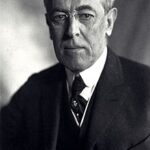Wilson’s Revolutionary Peace Framework
President Wilson’s Fourteen Points represented a groundbreaking approach to international relations in 1918. This comprehensive peace plan emerged as America’s response to World War I’s devastation. Wilson delivered his famous speech to Congress on January 8, 1918, outlining principles for lasting peace. 📊 The plan addressed territorial disputes, economic policies, and diplomatic practices that had fueled global conflict.
Core Principles and Democratic Ideals
The Fourteen Points emphasized open diplomacy, rejecting secret treaties that had destabilized Europe. Wilson advocated for freedom of navigation on international seas and removal of economic barriers. National self-determination became a cornerstone principle, allowing ethnic groups to form independent nations. ⚠️ This concept challenged existing imperial powers and redrew European boundaries.
International Cooperation Framework
Wilson’s final point proposed a League of Nations for collective security. This international organization would mediate disputes and prevent future wars. The plan promoted democratic governance and peaceful conflict resolution. 🌍 These idealistic principles established frameworks that influenced modern international law and organizations like the United Nations.
Impact:
Immediate Global Response
The Fourteen Points received widespread international acclaim from war-weary populations. Allied leaders initially embraced Wilson’s vision, though they later modified several provisions. Germany accepted the principles as basis for armistice negotiations in November 1918. 🌍 European ethnic minorities rallied around self-determination promises, accelerating independence movements across the continent.
Long-term Diplomatic Legacy
Wilson’s principles fundamentally transformed international diplomacy and law. The League of Nations, though imperfect, pioneered collective security concepts. Self-determination influenced decolonization movements throughout the 20th century. 📊 Modern international organizations like the United Nations adopted many Wilsonian principles for peaceful conflict resolution.
Challenges and Adaptations
The Treaty of Versailles only partially implemented the Fourteen Points framework. European allies prioritized territorial gains and war reparations over idealistic principles. 🔥 This disconnect contributed to future conflicts, but Wilson’s vision remained influential. The Atlantic Charter of 1941 and post-WWII international system reflected many original Fourteen Points ideals, demonstrating their enduring relevance for democratic international cooperation.
